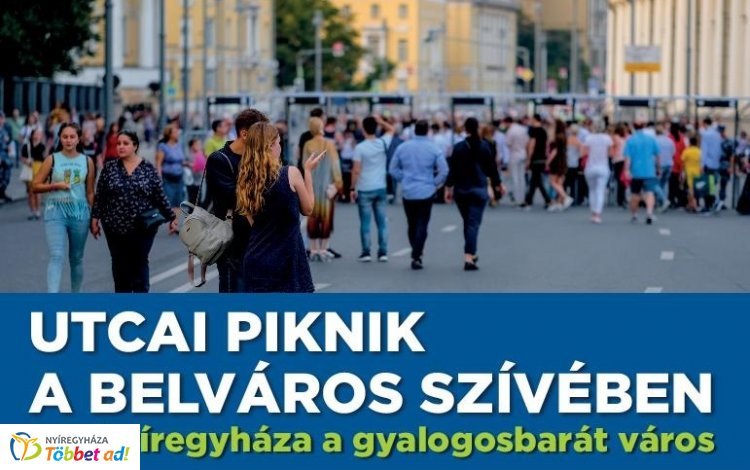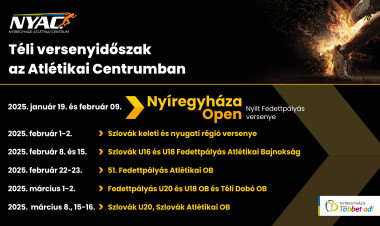CityWalk: az élhetőbb városokért hozták létre
A Nyíregyházán is megvalósuló CityWalk projekt – célja, hogy hozzájáruljon a károsanyag-kibocsátás csökkentéséhez, illetve egy biztonságosabb, élhetőbb környezet kialakításához.
A projekt célja
A CityWalk2.0 fő célja a közlekedési szektor energiaváltásának előmozdítása, a városi közlekedés energiafelhasználásának drasztikus csökkentésével. A leghatékonyabb módja ennek az, hogy a városokban áttérünk az extrém energiaigényes (és alacsony hatásfokú), elsődlegesen autóorientált mobilitásról az aktív mobilitási formákra (gyaloglás, kerékpározás), mikromobilitásra és a közösségi közlekedés használatára.
Nyíregyháza, mint partner szakmai tevékenysége
A korábbi CityWalk projekt elsődlegesen a gyalogosbarát város tervek módszertanának kialakítására koncentrált. A CityWalk2.0 ezzel szemben nemcsak a közlekedési feltételek átalakítását célozza, hanem a városlakók szemléletváltását is.
A CityWalk2.0 kulcsfontosságú elemei:
- az utcadesign átalakítása oly módon, hogy a városi utcák minél kedvezőbb és biztonságosabb feltételeket kínáljanak az aktív mobilitási formák számára, ezek ösztönzése az autó használatának elkerülése érdekében,
- a városban élők utazási szokásainak megváltoztatása és
- a fenti változásokhoz elengedhetetlen döntéshozói elkötelezettség megerősítése
A partnerség innovatív utca-design megoldásokat fog kialakítani, aktív mobilitást ösztönző utca-design mintákat fejleszt, szakpolitikai javaslatokat dolgoz ki, valamint a CityWalk módszertant ismerő és alkalmazni képes helyi szakembereket képez.
A projektben résztvevő partnerek
Vezetőpartner
- Scientific Research Centre Bistra Ptuj (Szlovénia)
Projekt partnerek
- Első Magyar Felelősségteljes Innovációért Egyesület (Magyarország)
- URBASOFIA S.R.L. (Románia)
- Bécsi Műszaki Egyetem (Ausztria)
- Municipality of Centar Sarajevo (Bosznia-Herzegovina)
- City Hall of Chisinau municipality (Moldova)
- Municipality of Satu Mare (Románia)
- Municipality of Budva (Montenegro)
- City of Sremska Mitrovica (Szerbia)
- Statutory City of Pardubice (Csehország)
- City of Valjevo (Szerbia)
- City of Karlovac (Horvátország)
- North-West Croatia Regional Energy and Climate Agency (Horvátország)
- Nyíregyháza Megyei Jogú Város Önkormányzata (Magyarország)
A pályázat költségvetése a következőképpen alakul:
• a projekt összköltsége: 2 466 800 EURO
• Nyíregyháza Megyei Jogú Város támogatási összege: 190 000 EURO
Ebből:
• Uniós társfinanszírozás mértéke (80%): 152 000 EURO
• Állami társfinanszírozás (15%): 28 500 EURO
• Önerő (5%): 9 500 EURO
Projekt facebook oldala: https://www.facebook.com/CityWalk.project
Project weboldala: https://www.interreg-danube.eu/citywalk-2-0
English version
Project acronym: CityWalk2.0
Project title: Together for Energy-efficient Urban Mobility: Decreasing Carbon Intensity of Urban Transport by supporting Shift to Active Urban Mobility through rethinking street design and changing travel behaviour
Programme: Interreg Danube Region Programme
Duration: 01/2024 - 06/2026
Partner countries: Slovenia, Romania, Hungary, Croatia, Austria, Bosnia and Herzegovina, Moldova, Montenegro, Serbia, Czechia
CityWalk2.0 builds on the heritage of CityWalk (2016-2019), awarded the RegioStars Public Choice Award. The acceleration of climate change, the energy crisis call for imminent changes on all fronts where we can significantly reduce energy use and GHG emissions. Urban mobility is a major contributor to both – its transformation is inevitable and urgent.
CityWalk2.0’s main goal is to promote energy transition in the transport sector by drastically reducing energy use of urban transport. The quickest, most efficient and cheapest way is to shift from extremely energy-intensive (and inefficient) car-based mobility to active forms of mobility (walking, cycling), micromobility and public transport the primary means.
CityWalk had a planning orientation with a walkability focus and targeted mostly the city level, CityWalk2.0 focuses on implementing the transformation both on the city and citizen level. Key elements of CityWalk 2.0: (i) redesigning streets to encourage active mobility and discourage car use, (ii) changing the travel behaviour of citizens, and (iii) strengthening the political will and commitment (crucial condition!) to implement the transformation.
After establishing the state-of-the art and presenting it in the Baseline Study, we review the current street design and travel behaviour in partner cities and identify main challenges and we design a transnational strategy (O1.1). We train the representatives of partners in street re-design and travel behavior change (capacity building) enabling them to translate and adapt the main findings of the the strategy in local plans. We design innovative, practical toolkits (3), while partners – using the knowledge and methods they have been provided - design local plans (O1.2) and action plans for pilot actions. City partners implement and assess pilots (O 2.1) with the support of knowledge providers to test and validate the toolkits. After having been tested and validated, all of these will eventually form our solutions. So, we develop 3 toolkits, implement 3 pilot actions, and deliver 3 solutions (O2.2). Finally, our partnership will also take specific steps to strengthen the commitment of decision-makers and to disseminate the solutions tailored to the target group beyond the partnership. We also identify specific policy changes necessary to implement on local and transnational level, and decision-makers will sign a position paper officially confirming and cementing the cooperation of partner cities and organisations (O3.1).
The 14 partners from 10 countries compose a synergic, professional partnership tailor-made to the project objectives in terms of geography, type of partner and expertise. 4 knowledge providers and 10 territorial partners ensure the balance of the necessary knowledge, piloting and policy proposals. The partnership is balanced in terms of old CityWalk partners and new partners, EU members and non-EUmembers.
Since the drivers of climate change are transnational (and global), not limited by regional/national borders, widespread and strong international cooperation is needed.
This project is supported by the Interreg Danube Region Programme with co-financing from Interreg Funds and the Hungarian Government.
The budget of the tender is as follows:
• Total cost of a project: 2,466,800 EURO
• Subsidy amount of Nyíregyháza County City: 190,000 EURO
Of this:
• Amount of EU co-financing (80%): 152,000 EURO
• State co-financing (15%): 28,500 EURO
• Own power (5%): 9,500 EURO
Project facebook: https://www.facebook.com/CityWalk.project
Project website link: https://www.interreg-danube.eu/citywalk-2-0








